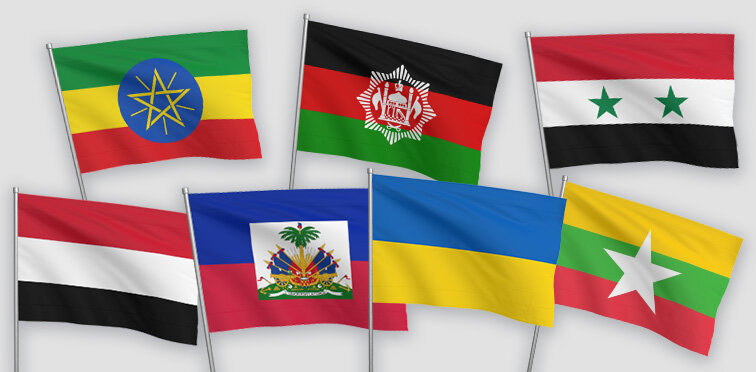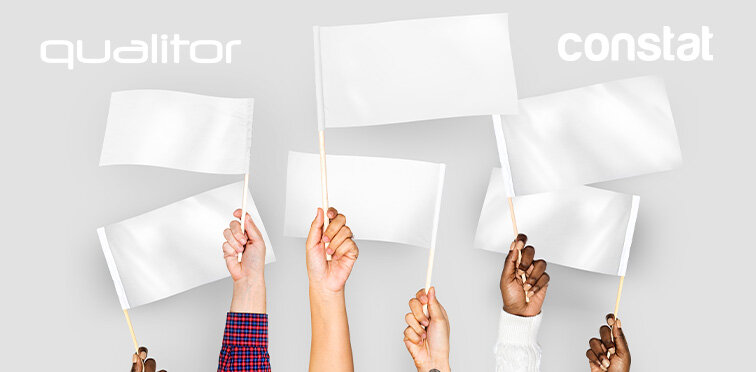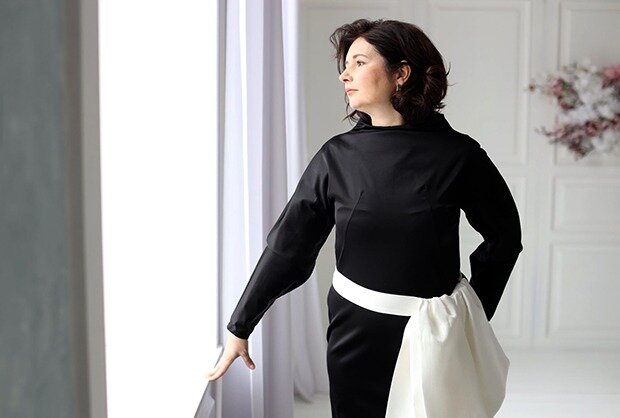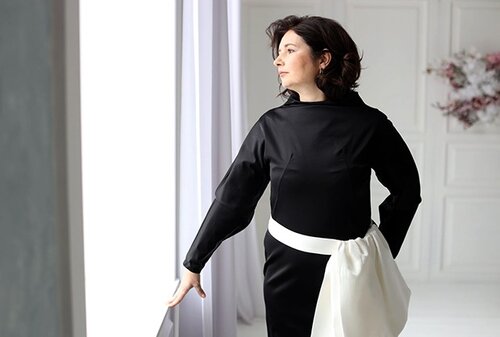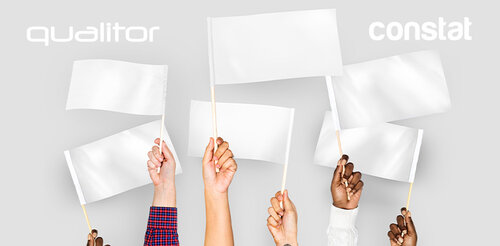Conflito na Ucrânia: um olhar direto do front
Com a Qualitor News, nosso propósito é compartilhar informações sobre fatos, momentos e acontecimentos que impactem nossa atualidade. Por aqui, muito se fala em negócios, estratégia, tecnologia, inovação, mas o espaço é aberto a toda gama de assuntos que sejam relevantes para a sociedade e que estejam em linha com os valores da Qualitor.
Por isso, no cenário de conflitos atuais, não nos esquivamos de compartilhar um canal de informação. Nos dois últimos anos, todos temos vivido um drástico impacto resultante da pandemia da Covid-19, que evidenciou a capacidade humana de combater o inesperado e o perigo com conhecimento e pesquisa. Não é uma guerra armada, mas é sem dúvida uma batalha pela vida.
E justamente quando parece que o vírus dará uma trégua, quando sentimos a vida retomando sua, ainda que nova e modificada, normalidade, surge um novo impasse, sem qualquer possibilidade de negociação, resultando na morte de civis, no corrompimento de direitos universais.
Famílias que perdem tudo. Cidades que são destruídas. Economias que são fortemente impactadas. Sociedades fragilizadas por decisões cupulares que, cinicamente, esnobam a ciência, a saúde e a razão com um único apertar de gatilho ou botão.
Nada que se possa perdoar em menos de um século. Ou talvez nunca. A guerra.
Neste momento terrível, conhecemos uma cidadã ucraniana através do LinkedIn, Dzvenyslava Novakivska. Ao ouvir seus relatos, não pudemos nos furtar a compartilhar com você esta voz que, infelizmente, vive e narra de perto o horror.
Confira abaixo este artigo que traz um olhar direto do front. E ao fazer esta leitura, aproveite para refletir sobre tantos outros conflitos hoje em andamento, em países que não ganham tanto espaço nas mídias, mas que sofrem os mesmos horrores e merecem nossa empatia, como Etiópia, Iêmen, Haiti, Afeganistão, Mianmar e Síria.
Daqui do nosso Brasil, que em toda sua complexidade também nos apresenta desafios diários, ainda que nem de longe se assemelhem à dureza de uma guerra, agradecemos muito a nossa amiga ucraniana que, com toda a gentileza, nos prestou seu depoimento.
Se você precisar traduzir o artigo do original em inglês, nossa dica: https://bit.ly/358O4aU
Conflito na Ucrânia: um olhar direto do front - Por Dzvenyslava Novakivska
I write the beginning of this article on the 23rd day of the war. After already usual night silence broken by the siren of aviation alarms. This night relatively quiet city Lviv has been shelled again. And doors at the basement of the house we stay in were bouncing from colossal shock waves. But we survived this attack. More than 3000 civilians did not. Misssiles strike on residential areas, shools, hospitals and cities’ central squares. If you’re staying in Kyiv, Kharkiv, Chernihiv or other cities, you cannot be sure that you will be alive in a month.
These days I come to you with a story about my country that stands for freedom of choice and freedom of self-determination. We hope that world glorifying Russia after war alliance in 1945, understands one thing: Ukraine is resisting and will continue to do so.Our spirit of independence has been there for centuries but is showing itself now in full strength. We understand that if Russia loses it, the world will get rid of another big dictator. We stay in the protection of our identity, under absurd attack under the political excuse to protect Russian speaking population in Ukraine. That sounds as unlogic as the right to Portugal to invade Brasl to defend its people’s interests. If Ukraine loses this war, we know that our existence as a nation is at stake. We know it not only because Putin declared this war as denationalization of Ukraine. We realize it from centuries of fights between our countries. And from stories of our grandparents remembering feminine and repressions of Bolshevik Russia against Ukrainians that killed and tortured millions and then made colossal propaganda investment in canceling our culture and language in Ukraine and all over the world. That is why we stand for our land even most world leaders have believed we will surrender on the third day of war against the 2nd biggest army in the world.
I am a 48-year Ukrainian communication specialist. A week before the war, I delivered a strategy planning facilitation session for two NGOs. Same week first group of my online course on Powe Point design passed the exam. The same week, I have finalized negotiations on launching communication training programs for Ukrainian medical institutions and international big food companies. A day before the war, I had a photo session for my renewed portfolio. And we made family plans to go skiing next week.
It was a typically busy week for a Ukrainian freelancer. Ordinary life I lost on the first day of the war when Russia started shelling all airports in the cities of my country. That day was a usual slowly family weekend for us with my husband, IT developer, first-year schooler son, and 14 years old dog. Two years ago, we left Ukraine’s capital Kyiv with its three mln population for a more quiet type of life in its suburb in pine woods. Hostomel, Bucha, and Irpin – three bordering towns were having a boost of new residential buildings and private houses complexes. They became attractive home spaces because of the middle class, including freelancers and IT specialists moving there with families for a healthier life. And that kind of life got more popular with covid pandemic because even with rules limiting public appearance we had a small garden to get some fresh air and sun.
It was a perfect home for peaceful times. But since it was close to Antonov airport, we felt a freezing touch of war the very first day, falling on our kitchen floor with first missiles flying over the roofs of our houses. As soon as we heard the news about the Russian army landing nearby, we knew that our lives were at stake. Thus we grabbed prepacked alarm bags and jumped into our family cars, picking up two neighbors with their dogs. We had a long journey to get to my parents’ home city. A road from Kyiv to Lviv city in the Western part of our country closer to Poland usually takes 6-7 hours. On that day, it took us 25 hours of almost nonstop drive since the highway was covered with lines of cars slowly moving West where we expected to be safe. In the first 48 hours, 50000 Ukrainians left the country. Now UN declared 3.5 million refugees and over 2 million of internally displaced people. Almost 3000 civilians are reported dead. We will know the accurate data only when the cities are liberated from the invaders. But we know for sure that most Ukrainians do not want to leave their homes, and as soon as war comes to its end, we want to go home.
Country of dignity and freedom
The chief distinction between Ukraine and Russia lies in political traditions. After the fall of the USSR, we as an independent state voted for 6 different presidents. Russia has Putin for 22 years already. Ukraine’s recent history is a story about the values of dignity moving east. Citizens standing barehanded for their rights against the police troops of pro-Russian president Yanukovych and now against Russian tanks. Today’s Ukraine is a country in which the values of dignity and freedom for all are rerooted. This provokes horror in today’s Russia, which wants to re-establish authoritarian values, and where the only person with dignity is the tsar or dictator. Our country is provoking an example for other post-soviet countries to rise up against the dictatorship regime of Russia manipulating national governments and economies. Putin now is at war not with Ukraine but with the West in Ukrainian lands.
Ukrainians increasingly want to be with Europe. Some 86% support EU membership and 76% back NATO accession. Unlike Russians, many of whom consider the West their enemy, Ukrainians mostly feel European and want to be a part of the West. As tanks bear down upon them, they are bringing a new energy to European values and are showing incredible courage in defending them.
Political tradition comes from middle age Kyivan Rus' (that was one of the biggest European states at a time) and Cossak Ukrainian State that lasted till the end of 18th century. Our history varied, but it had political institutions similar to those existing in the West. There was no centralized authority - there were several poles of influence, not just a single hierarchy.
Ukraine is a political nation. It is not centered exclusively on any single ethnic, linguistic or religious identity. It is pluralistic. You can be a Ukrainian speaker, Russian speaker or a speaker of Crimean Tatar and be ready to defend Ukraine. You can be Ukrainian Orthodox, Greek-Catholic, Roman Catholic, Protestant, Muslim or Jewish and stand shoulder to shoulder for this country. Ukrainians have a Russian-speaking president who has Jewish origins.
Country of reach land with the magic spirit
Ukraine is the largest country in Europe with 603,628 sq. km. At the same time, Ukraine is the 46th largest country in the world. Ukraine is home to 25% of the world’s famously fertile black soils – or chernozem. But farming is popular all over the country: in the mounting, near sea or in steppe They say that you can put a stick into the ground and it will grow. No wonder agriculture is one of the biggest industries in Ukraine. Nowadays, farms are very much enforced by digital software and modern tools and technics. Recently, many small private fields appeared with growing lavender, berries, greens, snails and ostriches as exclusive addition to traditional chickens, pigs, and cows.
We love our land. All variety of its landscapes. It is part of our spirit. We still have a mix of pagan religion and Christianity that was brought to our Kyiv Rus by king Volodymyr in 889 ac. We celebrate main holidays, including Christmas and Easter, blending them with ceremonies from pagan religions. Many people believe the land is not just ground under our fit. It is an alive caring mother whose nature is filled with spirits to protect its people. his archetype appears in our fairy tales and modern fiction stories. And in personal traditions. It is believed that Ukrainian does not rely on ethnicity but a conscious choice of identity in respect to land that feeds you.
Many Ukrainians after 30-ty prefer a small house in town, rather than a flat in the center of the city. The garden is usually a place to spend sunny days, host friends for barbeque parties, and have fun with kids. Ukrainians love to grow flowers and organize tiny gardens near ther house. I had small one near my house with different types of strawberries, cranberries, raspberry, blackberry, blueberry and flowers flourishing from spring to late autumn. Now my home town is under Russian invasion and both house and garden are robbed and destroyed. And near by park is covered by mines and hidden explosives.
Our agricultury industry is also uder raiders attack. Our famous grain and sunflower fields are in the country’s South, partly invaded by Russian army. Ukraine is the world's second-largest grains shipper, one of the main world exporters of vegetable oils and a major chicken seller. But as a result of war the Russian navy’s blockade of Ukraine’s ports stops food supplies from our country. When this "breadbasket of Europe" is knocked out of supply chains and aid networks, the world is going to feel it. And developing countries are first on line. In 2021 U.N. World Food Programme sourced in Ukraine more than half of its supplies for the hungry across the globe. But farmers bravely started spring season doing their job in between bombing and missiles attack. And the business did its best to support the army and citizens with food reorganizing logistics. Thus all cities that are not under siege have enough food in shops—including the capital.
Country of volunteers
International media are surprised when they come to Ukraine these days because they expect to see a country in ruins and agony. They hope to meet millions of victims among civilians. Instead, they see destroyed infrastructure but resilient and dynamic people very much involved in fighting back for our victory. On the first day of setting one of numerous humanitarian headquarters in Lviv city, Romanian journalists came to interview refugees. 30% of people in the room had to flee from the bombing and could tell their stories. But journalists did not take any - they did not believe that good-looking, smiling, and dynamic people in the room were refugees (internally displaced people) themselves. We did not fit into their stereotype box of people in need. And here are a few reasons for that.
From the first day of the war, Ukrainian volunteers have been actively involved in our country’s standing against invasion. You will be surprised by the wide range of acitivities they are engaged in. They are evacuating citizens from occupied territories and organizing humanitarian help to those who stayed (Red Cross failed to do this even on green corridors because of endangered life by constant breaking by Russian soldiers agreement on non-shooting time). They give psychological support in cooperation with foreign collegues to Ukrainians freed from captivity or siege. They help refugees with shelter at private homes and sports clubs, feeding them and giving medical and psychological aid. Others organize transportation for women, children, and the elderly from the North, East, and South of the country severely shelled by Russian bombs and missiles. And then another line of a journey for women and children - to hosting European communities in supporting countries. All that job is done pro bono and looks like a hive - amazingly coordinated chaos of millions of actions at a time.
Some volunteers organize chain supplies to buy military ammunition, from bulletproof vests to thermal imagers and drones. They do it so actively that all goods of that kind disappeared both in Amazone and military shops of countries bordering Ukraine on West. Any business manager would be amazed by such a performance. But this effectiveness has its reason in our history—the Russian invasion in 2014. Eight years ago, we were just learning how to equip our army in an expedited manner. Then Ukrainians donated more than 11 million dollars officially. Today national bank declared that on his accounts, more than 400 million dollars of donations already. But we do not know unofficial numbers of aid because numerous supplies were and are provided privately.
Besides individuals, Ukrainian businesses are very much involved in supporting our standing in this war. Gabage sorting stations reorganized their business in providers of materials for Molotov cocktails and long-term candels for terriotorial units of defense. One foreign logistics company that bought and opened a warehouse in Poland just after the invasion, right next to the Ukrainian border. The location has become a central warehouse for Lviv and the city region, specifically a drop-off point for international goods. Getting foreign supplies straight into Lviv is all of a sudden very hard, so lots of different people and organisations (government or not) are sending their goods to the Polish warehouse, from which they are brought into Ukraine.
The biggest logistics carrier and the fasters delivery operator Nova Poshta with 10 000 brunches all over the country, announced that is deliver goods from volunteers for free. Now it is 500 tons of humanitarian cargo each day. Top product companies managers have launched KOLO – community for critical support of Ukrainian defenders https://koloua.com/?fbclid=IwAR07WAe6C3wGXnQzi7ox1QtgNhIBn0aNi00EpEJUxvO7Bn3ezAK9qVxi42M. They collect donations to organize supplies of quadrocopters and drones, thermal imagers, and sights. War experts say that we Ukrainian soldiers show incredible performance in using modern military equipment, prooving that tanks are tools of past military campaigns. Our IT sector and digital bank and government services systems are well known globally. They support their o staff now, pay taxes to support the economy, and give regular donations to the army.
‘Come back alive” foundation https://savelife.in.ua/en/ is world known NGO that, besides helmet and vests supplies, has now started gathering stories proving war crimes of the Russian army. Its founder, my friend Volodymyr Dynega, stopped his round the world trip on the chopper to return to Ukraine and protect his country. He still remembers 2014, when Russia invaded Ukraine after our Maidan of Dignity. Soldiers than were fighting back in very poor armory state, almost barehanded. Eight years ago, we started supporting our army with boots, clothes, and food. Then we learned how to import helmets and vests. That gave our army support and protection, but they still had to fight back almost barehanded. Lessons were learned. Since then Ministry of Defense has been much transformed from a pro-Russian corrupted institution to a state institution Ukrainians are proud of. And due to national defense programs and international support, we have a better armory and technical support.
Since 2014, Ukraine has gone through some dramatic political, socio-economic, and cultural changes. There is no doubt that the rising Ukrainian national identity and patriotic sentiments generated by Russian aggression in the Donbas and Moscow’s occupation of Crimea have changed the Ukrainian mindset, not only in the political and cultural fieldUkrainians has much developed since than and our support is as effective as our army that amazes the world with its performance. That shows how much stronger you can be if you are well organized and trained, winning battles with much fewer soldiers and military weapons.
Country of startups and inventors
Ukraine has a long history of inventors. This spirit helps us to invent new tactics and technics fighting against invaders. Even Molotov cocktails evolved in a weapon against tanks allowing citizens to put them in a fire in the city. And our soldiers invented the usage of the primitive weapon to shoot down missiles.
I will name some inventions that influenced modern life. The creation of HHDs was made possible by two scientists — David Thompson and Lubomyr Romankiw. The last was born in 1931 in Zhovkva, Ukraine, and now he works and lives in the United States. Romankiw became the author of 65 patents throughout his life, made a career at IBM, and received international recognition. In 2012, Lubomyr Romankiw, along with nine other inventors (including Steve Jobs), entered the US National Hall of Fame.
Fedir Pirotsky in 1880 set the tram car in mition by electric fourse. At first residents of St. Petersburg actively used the tram, viewing it, of course, more as an attraction than a new type of public transport, because the experimental area was only 85 meters. It was a year before. It was then that the first passenger electric tram line appeared in Berlin. Built by Siemens according to Pirotsky’s drawings, the tram went on the route on May 16, 1881.
Serhii Korolov succeeded in launching of the first artificial satellite of the Earth. Engineers argued for a long time regarding the material it should be made of and about the weight, size and its shape. Then Korolov said: “Sphere and only sphere! ... Understand, first! When people will see an artificial satellite, it must cause the warm feelings.” He also invented rocket R-7 that placed it to the orbit.
More about Ukrainians inventors you can read in book ‘Nashi’ that is among finalists at BolognaRagazzi Award на Bologna Children's Book Fair https://nashi.engineeringweek.org.ua/english/content.php
Above that, in 30 years of independence, we had three revolutions and war. And each time, people had to reinvent something in their lives because of losses and changes of rules. After the Revolution of Dignity, we are joking that freedom is our unifying religion. With a simplified tax system for private entrepreneurs, we had almost every 18th citizen with this status, allowing you to provide business with low taxes and with almost no social state support. That makes millions of independent citizens who are used to standing for their rights, values, and lives.
That was good ground for growing not only shops, cafes, and restaurants but startups. Beginning mostly with service companies, the tech market nowadays is well represented by both service and product companies. Ukraine has become a powerful technological hub in Eastern Europe. We have a full-fledged tech industry with an increasing number of high-tech, complex products, and services.
Top startups with Ukrainian roots in the stage of sustainable business include Gitlab, Grammarly, Ajax Systems, People.ai, Restream. By the way, last year Grammarly (which uses machine learning to improve people’s writing and I use it for writing this text too) with over 30 million daily active users became the most expensive Ukrainian tech startup with $13 billion valuation. True to its Ukrainian roots, Grammarly announced it would offer financial support to pro-Ukraine groups and called on its over 30 million daily active users to lend their voice to those opposing Russian President Vladimir Putin’s war. In a post on LinkedIn, the company behind the real-time English language assistant and productivity app said it will donate $5 million over the coming weeks to organizations and funds supporting the people of Ukraine.
Reface is an application developed by Ukrainians with a unique AI technology that puts peoples' faces into gifs, images, and videos. Last year, Reface was chosen as one of 2020's best apps for fun on Google Play and was downloaded more than 50 million times. Raface added push notifications informing its ~200 million-strong global user-base about Russia’s invasion of the country — urging people to #StandWithUkraine, including by watermarking face-swapped videos created with the app. All videos created in the app are now being watermarked with the Ukrainian flag and the #StandWithUkraine hashtag. On first opening the app after this update, it also displays an image of civilians sheltering in Kyiv, with a caption that describes the picture as “evidence” of Russia attacking Ukraine.
Petcube is a connected technology startup that designs and develops hardware and software products for pets. It has raised $14 million in seed, venture, and more than $500,000 from two Kickstarter campaigns. During war, this company started a worldwide campaign to raise aid directly to funds in Ukraine to help animals survive Russian invasion. Most people tried to take their animals with them while fleeing to another part of the country or abroad. From photos taken in the subway, you see how many people are with animals there. We have a heartbreaking story of a woman carrying her old dog 17 km on her shoulders while evacuating from a small town near Kyiv occupied by the Russian army.
UGEARS is a Ukrainian startup that produces unique, self-propelled, wooden mechanical puzzle boxes and educational toys, which have become a fun and educational hobby for people in 85 countries across 5 continents. The startup's team includes more than 250 professionals: engineers, designers and craftsmen who bring a fantasy to life. Their leaders in sales are the U.S., China and England.
Country with taste of life
Trade centers and restaurants are also bombed by Russians these days. As if only our ability to leave and love life under shelling gives them more agony than international sanctions and brans leaving Russia. at the same time Trendy restaurants in Kyiv switch to cook for army, hospitals, elderly amid war. Not-for-profit organization World Central Kitchen (WCK) has set up mobile kitchens on the Ukrainian border and near transit hubs that are being used by refugees. The kitchens are now serving 100,000 meals a day — including apple pies and hearty soups — in five countries in the region. They've fed over a million people since the start of the war in Ukraine in 14 different cities.
After Revolution of Dignity 8 years ago the business and gastronomic culture in Ukraine’s capital city of Kyiv has been booming. The number of new restaurants, cafes, bars, and coffee shops grew all over the country by the day, it seemed, and a new generation of local chefs was reinventing Ukrainian cuisine, reinvigorated in part by the fall of the corrupt political regime and the common struggle away from Russia and toward the West. And — most importantly for a country very much used to home cooking — Ukrainians started to dine out.
Two weeks before war, prominent Ukrainian chefs and government officials announced the Ukrainian Cuisine Manifesto, which aims to promote Ukrainian dishes in the global gastronomic community, create new formulas for ancient dishes, and develop gastronomic tourism. 2022 was also when Ukraine had to host the main European Chees Awards event.
We have three restaurant capitals with various cuisine tourists were eager to to dine in during their visit in Odesa, Lviv or Kyiv. Chinese, Japan, Georgian, Italian, Armenian, Turkish cusine. With wineries bringing wines from all over the world combined with striking diversity of cheese products (local and exported from Europe). Before covid, we hosted more than 20 million tourists per year. Ukraine recorded a total of 3 million tourists in 2020, ranking 51st in the world in absolute terms. In 2021 we had a real boom of tourists from We had real tourists boom partly because of our historical places to sea and beautiful nature and cuisine we have.
This taste of life makes us even under everyday shelling and sacrificing lives of Ukrainians for the sake of democracy in Europe dream about our future. We strongly believe that we will not only survive, but also we are eager to rebuild our country with all ruined infrastructure and economy. Our influencers start negotiating a Marshall plan for Ukraine and feel big support in this visioning from Elon Mask providing us with star links. And Richard Branson who openly spoke on Ukrainian independence support since 2014 and giving essential support to local foundations through platform https://www.withukraine.org/en. And numerous world-known celebrities standing for Ukraine and donating for humanitarian help. Madonna, actors Mila Kunis and Ashton Kutcher, super model Gigi Hadid, Leonardo DiCaprio, Ryan Reynolds among them. David Beckham handed his Instagram account with 71.5m followers to a Ukrainian doctor in Kharkiv to show a real-life picture of Russians shelling the city and killing civilians including children.
UN and Haage courts made their announcement and started cases on Russian genocide against Ukraine and war crimes. A group of European politicians appealed to Nobel Committee with an initiative to nominate Zelensky and the people of Ukraine for the Nobel Peace prize. ‘We are witness to the courage of people of Ukraine withstanding this waged upon them by the Russian Federation. We hope we will win not only the prize but the war. And that will give us the right to be finally seen as an independent state cutting off shadowed ties of Russia vampire. We understand that being occupied by their influence in a hundred years we still have a long way to go. But we are ready now. To stand, survive, live and develop as Ukraine. And if you will ask what makes us so sure about this future that looks more than a miracle these days, I will answer that in challenging times we are hard-working cooperative believers, with revitalising and value-oriented and open-minded leaders.



